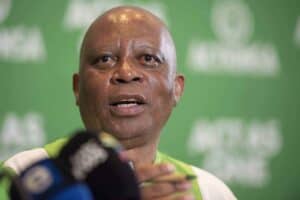Parliament has doubled the original donation disclosure threshold and annual limit.

Analysts are not surprised by the decision to raise the donation disclosure threshold and annual limit in the Political Party Funding Act (PPFA).
This follows the National Assembly’s adoption of a report from the portfolio committee on Home Affairs.
The report proposes doubling the current threshold for disclosing donations to political parties — from R100 000 to R200 000 — as well as raising the annual donation cap from R15 million to R30 million.
Political Party Funding Act amended
The proposed changes follow the signing of the Electoral Matters Amendment Act (EMAA) into law by President Cyril Ramaphosa in May 2024.
The EMAA revised the PPFA, removing the original disclosure threshold and donation limit altogether for declarations to the Electoral Commission of South Africa (IEC).
This loophole was challenged by the non-profit organisation (NPO) My Vote Counts, leading to a Western Cape High Court ruling that ordered the reinstatement of the previous limits and required parliament to determine new figures.
ALSO READ: ‘It’s a waste of people’s time’: Politicians argue about party donations
The president is empowered to implement regulations related to these thresholds. However, this must be done through a resolution adopted by parliament.
Now that parliament has acted, concerns have emerged about the implications for political transparency and accountability, especially around private funding in politics.
Analysts weigh in on political party funding threshold hike
Political analyst Ntsikelelo Breakfast weighed in on the rationale behind doubling the threshold and donation limit, considering the Parliamentary Budget Office (PBO) previously concluded there was no basis for the initial figures of R100 000 and R15 million.
The Nelson Mandela University senior lecturer noted that the PPFA was enacted in response to a court ruling compelling political parties to disclose their sources of funding.
“This is not their brainchild. They’ve been forced by circumstances to account on the principle of transparency.
“Many political parties argue that this legislation has really dealt them a blow in a big way because now they have to reveal their funders,” he told The Citizen on Monday.
Breakfast also highlighted the financial pressure the legislation may have placed on some political parties, particularly the ANC, which has previously faced difficulties in paying staff salaries
“To me, that justifies why the numbers have gone up and why none of them is opposed to that.”
READ MORE: Why South Africa’s youth voters are staying away from the polls
The PBO had recommended inflation-adjusted thresholds of R122 000 for disclosure and R21 million for the annual donation cap.
In light of this, North-West University professor André Duvenhage described the decision to double these amounts as “very arbitrary”.
“There’s a huge need for getting more and more money and that is the main reason for the adjustments, but there can be no specific rationale for just doubling the R100 000 and R15 million.
“If they work with inflation, it will be quite a different figure. So I can read a lot of political motives. I can see the ANC specifically in trouble,” Duvenhage told The Citizen.
Transparency and financial pressures
Duvenhage suggested that both the ANC and the Economic Freedom Fighters (EFF) might be under financial pressure due to the PPFA, but smaller parties are even more disadvantaged.
The political analyst also noted that many parties are not fully transparent about their financial backing.
He further expressed concern that the increased thresholds might open the door to greater private—and even foreign—influence in South African politics.
READ MORE: ‘Can you imagine our system being hacked’: MPs sceptical of IEC’s e-voting proposal
“I think this might be the political party environment a lot more vulnerable in that sense.”
Breakfast echoed similar sentiments.
“Why do you want to engage in certain political operations in private, but you say that you are for the public? Why do you discuss money in private?”
Has the Political Party Funding Act worked?
When asked about the effectiveness of the PPFA since its implementation in 2021, Breakfast emphasised that the law has increased voter awareness about the sources of political party funding.
He cited instances where parties like ActionSA and Rise Mzansi had received support from the Oppenheimer family, and stressed that the legislation empowers voters by enabling more informed decisions at the polls.
“Now we know what is the agenda because of this legislation,” Breakfast said, adding that voters can “connect the dots” when evaluating party policies.
Duvenhage stated that he believed there was “a lot of room for misconduct” prior to the law’s enactment.
“I think in comparison, the dispensation post-2021 was better than the one pre-2021.”
Legal and constitutional dynamics
A key question now is whether the president has the authority to reject or revise the amounts adopted by parliament.
Breakfast referenced the doctrine of separation of powers in response.
“Nothing can be done without the buy-in from legislature. Secondly, there is no legislation that can be rolled out or can be implemented without the authorisation of the president.”
He added that dissatisfied members of parliament could challenge such laws in court.
“That’s how our democracy is arranged.”
Duvenhage highlighted the uncertainties in how parliamentary rules are sometimes applied.
“I think it’s a bit of a grey area, but if we work with the principle of separation of powers, that the president should obey the line that was identified through parliament, and he should implement that in terms of a general decision, he can’t take his own decision.”
Support Local Journalism
Add The Citizen as a Preferred Source on Google and follow us on Google News to see more of our trusted reporting in Google News and Top Stories.








